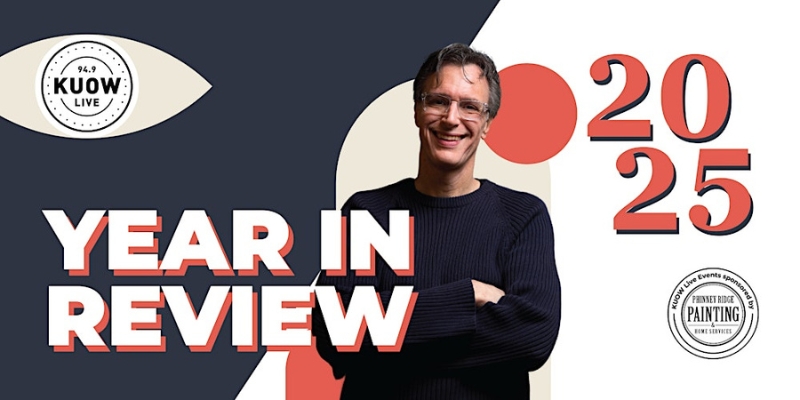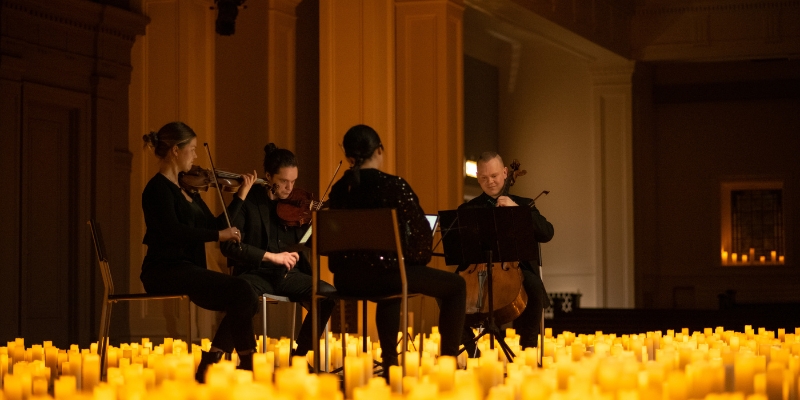What happens when you merge fluid improvisation and subtle noise with traditional Arabic music—then add the talent of a guitar master? The Vancouver-based band Haram aims to find out. Led by award-winning oud virtuoso Gordon Grdina, Haram will be joining us at Town Hall on 3/1 in a Global Rhythms performance alongside legendary guitarist Marc Ribot.
Town Hall’s Alexander Eby sat down with Gordon Grdina for a conversation about ouds, band history, and the spirit of collaboration.
AE: Initially, what got Haram together? What factors steered the band towards including elements of traditional Arabic music?
GG: The band came together in 2008 from two main ideas. First, I wanted a band that could play the traditional Arabic music I was studying but in an unorthodox way. This was the Iraqi folk music I was learning from my teacher Serwan Yamolky and the traditional radio music from Egypt in the 50-60’s by musicians like Oum Khalsoum Farid Al Atrache, Abdel Wahab etc. We’ve since expanded to include Sudanese and Persian music from the same period.
Secondly, aside from my trio I wasn’t playing regularly with a lot of the incredible musicians in Vancouver and wanted to have a larger ensemble where we could all play together and get a chance to hang out. Some of the musicians were already versed in this music but most weren’t. I knew their incredible sensitivities would bring out new aspects of this ancient music and the repertoire would bring out aspects of their own playing we hadn’t heard before. It ended up being a great idea and we’ve enjoyed many great nights of music since then.
AE: Why are you drawn to the oud as an instrument? What’s it like to try to merge that sound with the rock/jazz/indie/improv sensibilities of the band at large?
GG: I had a very good guitar teacher when I was young who always brought new interesting music to each lesson, and left it with me so that I would get inspired. At 13 I was into a lot of blues and slide guitar, and my teacher Marko Ferenc brought me a Vishwa Mohan Bhatt record with Simon Shaheen. He wanted me to check out Vishaw’s slide playing, but as soon as I heard the Oud for the first time I was blown away. I couldn’t understand how the sound was being made but it grabbed me and I fell in love with it instantly. Simon Shaheen is also one of the greatest Oud players in the world so that didn’t really hurt either. I then got interested in other Oud players like Hamza El Din and Rabih Abou Khalili and later Munir Bachir and others.
I didn’t get an Oud and start playing the music until I graduated from Jazz School. I got one off of Ebay and instantly started a band called Sangha with my friends Hidayat Honari Neelamjit Dhillon and Hamin Honari. We play original music based in Arabic Persian and Indian concepts. So my understanding of the instrument and practice of it has always been within a blending of tradition. I’ve since studied traditional Arabic music more in-depth, but using the traditional alongside all of the other aspects of my musical understanding is intrinsic to how I make music. I knew that this band would bring out different aspects of the musicians and I could see how their unique voices could add a different dimension to these timeless melodies.
AE: What interests you most about working with Marc Ribot? What do you think the result will be of blending his musical style with Haram’s?
GG: Everyone in the band and myself are huge fans of Marc. He is one of the icons of the instrument because he transcends the guitar and creates music that immediately touches you. He is soulful, always interesting and intriguing no matter what he does. His sound isn’t based in flawless technique—even though he has that too. It’s based on creating the most direct and honest music in the moment. The most exciting part of this band is that everyone thrives on freely creating in the moment with a sense of abandon.
I think that Marc will meet this abandon and take us all to the next level. I’m expecting excitement, surprise, a fair amount of ripping and the unknown!
Haram and Ribot join forces onstage on 3/1 for an energetic and intuitive concert in a unique exploration of Arabic musical traditions. Get your tickets here!

